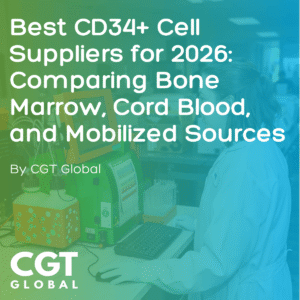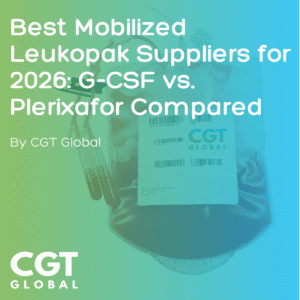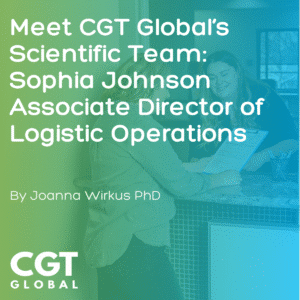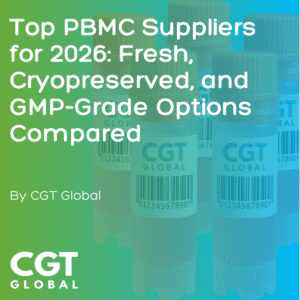Roughly 50 to 75 percent of FDA rejections in cell and gene therapy are not about safety or efficacy. They are due to CMC and manufacturing deficiencies.
In short, most programs do not fail because the science does not work. They fail because the manufacturing story is not strong enough.
(Sources: Jefferies analysis of FDA complete response letters, FiercePharma 2024; multiple CMC audit summaries 2020 to 2024)
For CGT developers, Chemistry, Manufacturing, and Controls (CMC) is not a regulatory checkbox. It is the foundation for approval. The FDA looks for control, consistency, and comparability in every step, from donor collection through final product release.
Here are the five “green flags” that tell reviewers your CMC is built for success.
1. Standardized Starting Material
Why it matters:
Consistency from day zero is non-negotiable. Donor variability undermines comparability and introduces risk that reviewers cannot overlook.
What the FDA looks for:
- CBC, HLA typing, immunophenotyping, and infectious disease screening
- Defined acceptance criteria and release testing
- Complete chain-of-custody documentation
How CGT Global delivers:
Every CGT Global unit comes fully characterized, including CBC, HLA, and immunophenotyping.
GMP Clinical Leukopaks
This standardized baseline reduces variability and builds reviewer confidence from the start.
2. GMP-Ready Processes
Why it matters:
“Fix it later” is how INDs fail. The FDA expects GMP controls to be in place before pivotal trials, not after.
What the FDA looks for:
- Cleanrooms and validated methods
- Compliant SOPs and training records
- Early process control data
How CGT Global delivers:
Our operations are GMP-ready across every facility. Cleanrooms, validated workflows, and audited SOPs are standard, not optional.
3. Strong Comparability Packages
Why it matters:
When scaling up or transferring sites, the FDA expects proof that your product remains the same. Weak comparability data is one of the top causes of review delays.
What the FDA looks for:
- Analytical similarity data
- Potency and stability bridging studies
- Process equivalence documentation
How CGT Global delivers:
Our CMC frameworks include built-in comparability strategies that allow clients to scale or transfer manufacturing without triggering re-reviews or regulatory friction. See how we support regulatory-ready CMC packages.
4. Rock-Solid Chain of Identity
Why it matters:
Traceability is non-negotiable. A single documentation gap can halt approval.
What the FDA looks for:
- End-to-end tracking from donor to administration
- Integrated documentation and barcoding systems
- Proven audit trails
How CGT Global delivers:
We standardize documentation across all labs and collection sites and are developing integrated systems that connect directly with clinical sites for complete identity preservation.
5. Reproducible Potency and Release Assays
Why it matters:
If you cannot measure it reliably, regulators cannot approve it. Potency and release assays are the linchpin of CMC confidence.
What the FDA looks for:
- Validated, reproducible potency assays
- Correlation between potency and mechanism of action
How CGT Global delivers:
Our validated standards keep assays reproducible, measurable, and defensible, ensuring data that regulators can trust.
The Bottom Line
Most FDA rejections in cell and gene therapy are not about the therapy itself. They are about manufacturing science. Sponsors who embed FDA’s five green flags early avoid delays, build reviewer trust, and accelerate approval timelines.
At CGT Global, we help sponsors standardize, document, and de-risk CMC from the first donor cell, building regulatory confidence from the ground up.
References
- Jefferies Equity Research, FDA Complete Response Letter Analysis (2024), summarized by FiercePharma: “Manufacturing issues were cited in 51 percent of rejections.”
- Industry CRL meta-review (2020 to 2024): “CMC and manufacturing quality issues were the leading cause of FDA non-approvals, appearing in approximately 70 to 75 percent of cases.”
- FDA/CBER public communications: Emphasis on CMC readiness as a key risk factor in gene therapy program holds and delays.






